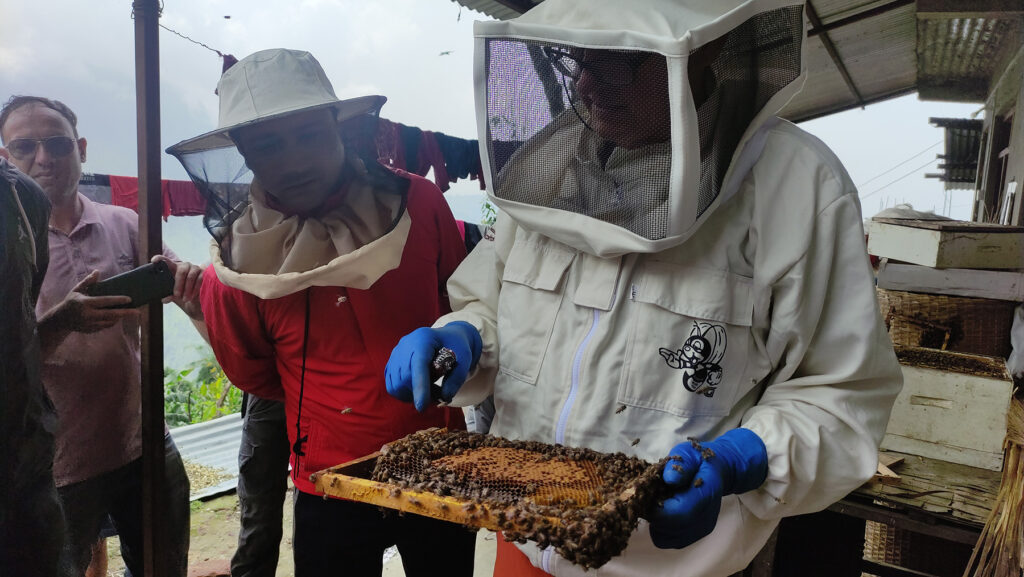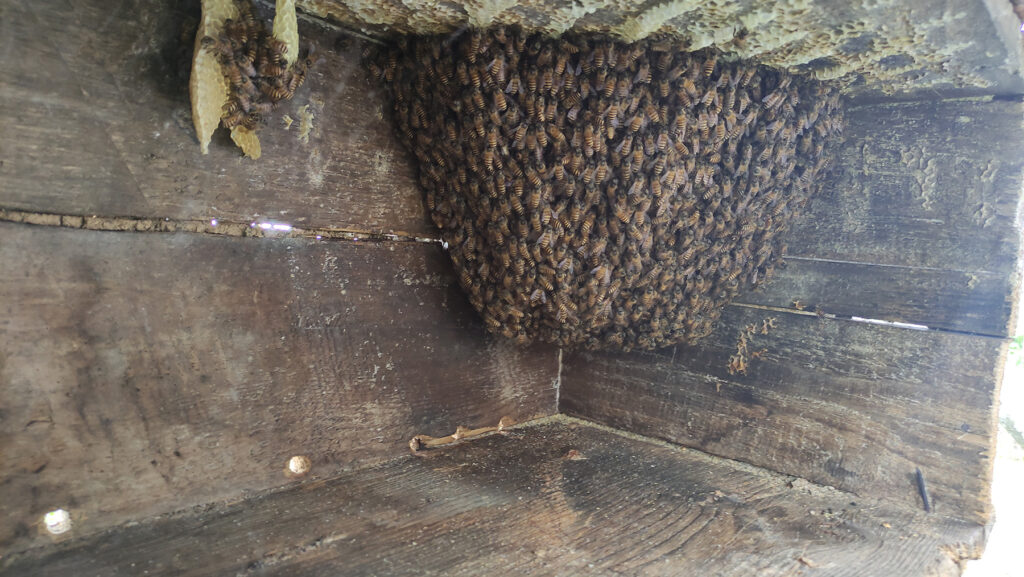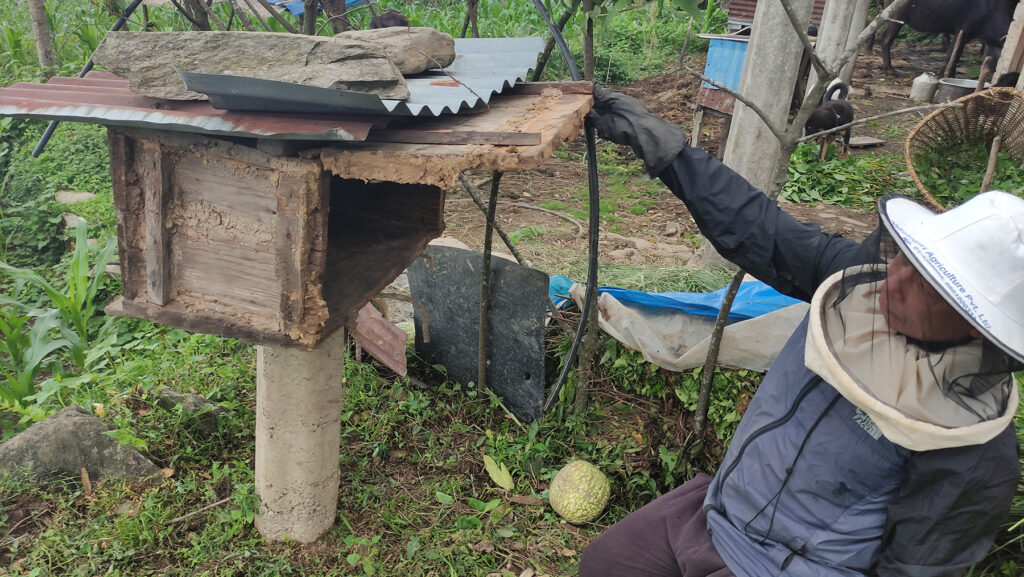Supported by Almayuda, Beekeepers is a programme run by the Italian NGO Asia Onlus. Its aim is to help people in the Rasuwa district of northern Nepal, in the buffer zones of the Langtang national park, to produce and sell quality honey. The project is particularly aimed at families made vulnerable by the aftermath of the 2015 earthquake.
Asia Onlus, founded in 1988 and based in Rome, contributes to the preservation of the identity and historical heritage of the peoples of Asia. Present in Nepal since 1996, it pays particular attention to the Himalayan regions. Almayuda has already taken part in three programmes run by this Italian NGO: the construction of a school and a monastery in Tibet, and emergency aid in Nepal following the 2015 earthquake.
A context of survival
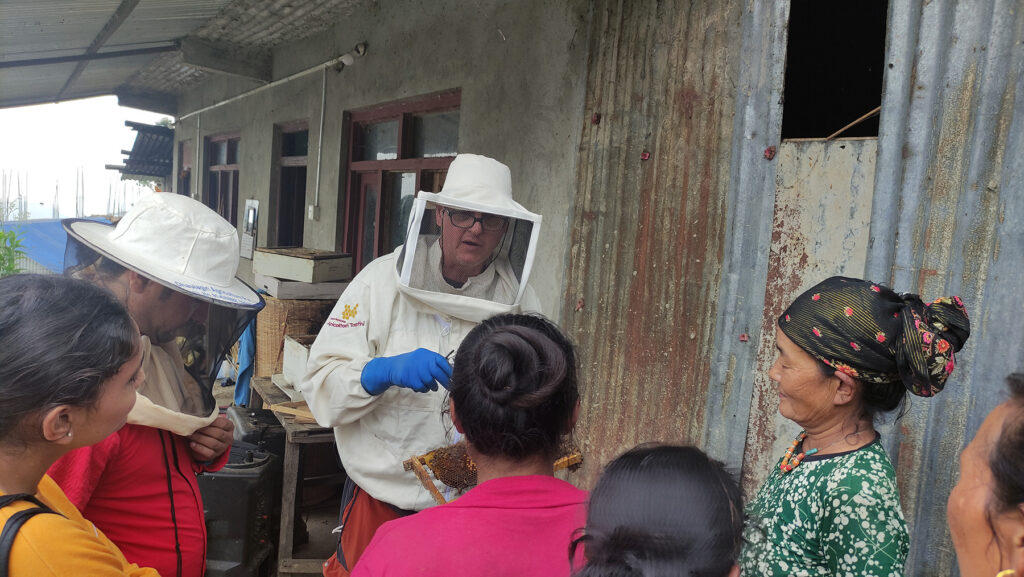
Asia Onlus is deploying Beekeepers in the north of Nepal, in the Bagmati province and Rasuwa district, where it built shelters in 2015. The rural municipality of Naukunda, specifically targeted by the project, is located in a “buffer zone” of the Langtang national park.
Officially opened in 1976, this first “Himalayan” park was extended in 1998 to include a 420km2 buffer zone, designed to establish a “seal” between the heart of the park and the rest of the country.
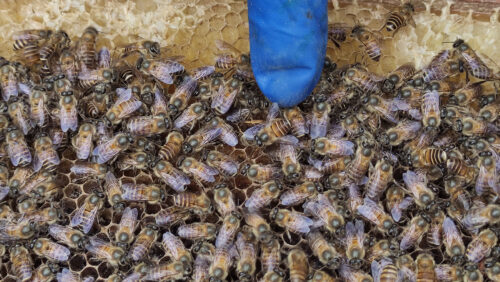
This area paid a heavy price in the earthquake of April 2015. Hundreds of people lost their lives or were seriously injured when landslides swept them away. Almost all the buildings were destroyed or damaged. Despite international aid, rural poverty has increased due to geographical isolation and the scarcity of available economic resources. This situation is exacerbated by the special regulations governing the buffer zone where the national park, for environmental reasons, drastically limits the use of land and natural resources such as timber.
It is in this context of survival for many Tamang families, deprived of their means of subsistence and often without men who have left to find work elsewhere, that the “Beekeepers” programme, mainly aimed at women, comes into play.
The honey value chain
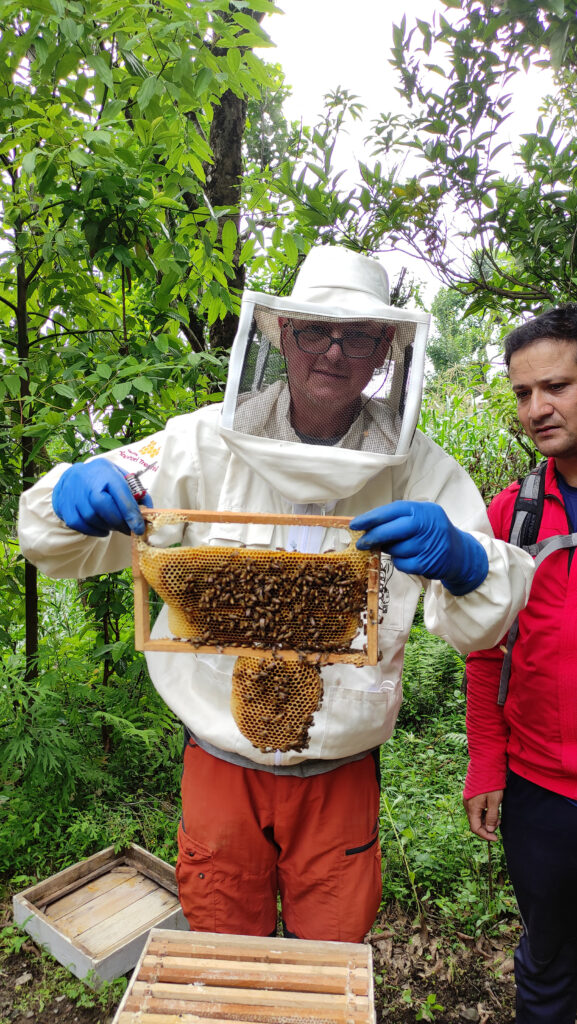
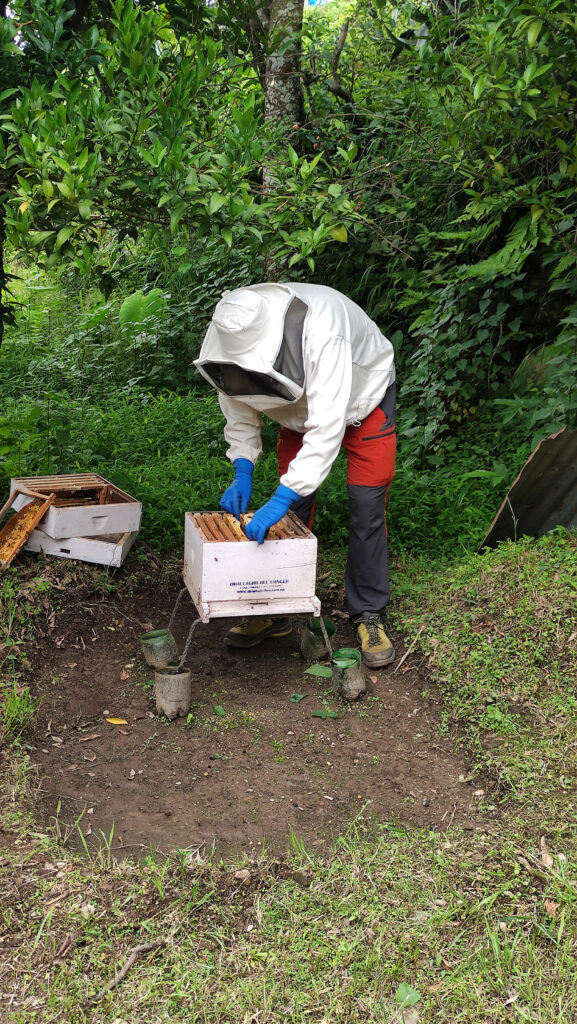
Developing beekeeping and exploiting the honey value chain in the buffer zones of Langtang National Park has two main objectives. The first is to help improve the living conditions of local people by guaranteeing them a sustainable income. The second is to reduce conflict between the park and the local people. The park’s restrictive regulations on access to land and natural resources systematically conflict with the survival strategies of the local people.
But why honey? Firstly, because beekeepers, or those who aspire to become beekeepers, possess or can quickly acquire the techniques, tools and know-how essential to efficient, sustainable, high-quality production. Secondly, because beekeeping and bees respect and contribute to the development of biodiversity. In short, this activity is good for the environment, as confirmed by the Langtang National Park.
The success of the project obviously depends on the establishment of a professional framework, combining specific training initiatives, the assistance of experts in the technical and marketing fields, and the allocation of hives and suitable equipment to operate them…
An appropriate professional framework
Among the initiatives undertaken for 50 beekeepers is the organisation of technical training courses designed to improve hive management and establish monthly technical monitoring. These courses are given in two three-day sessions, led by a local expert.
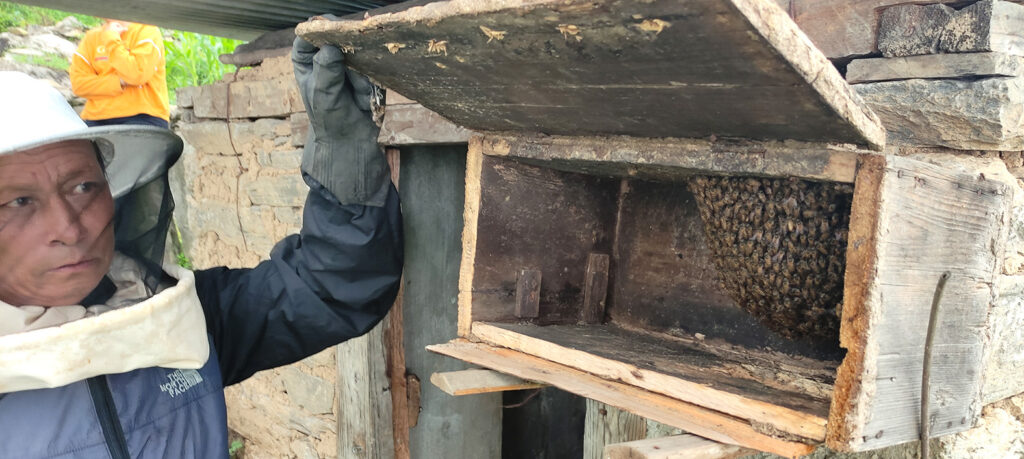
The other technical training course, given to the same 50 beekeepers, covers harvesting and post-harvest management, as well as honey processing and storage. Technical equipment was also distributed: a refractometer, essential for determining the density and moisture content of the honey, honey scrapers to collect all the honey easily and without loss, glass jars, etc.
Once the beneficiaries have been assessed and selected, the programme will then distribute additional hives to boost production.
And to ensure that the honey produced can find outlets, particularly on the local Rasuwa market and in Kathmandu, an expert will help the beekeepers to draw up their marketing plan.
Among the other specialists involved in the project, a consultant on the honey value chain in Nepal will carry out a market study and draw up a business plan. On a more original note, a partnership with a beekeeper from the Trento Beekeepers’ Association in Italy will broaden the scope of the project.
An extension of the project…
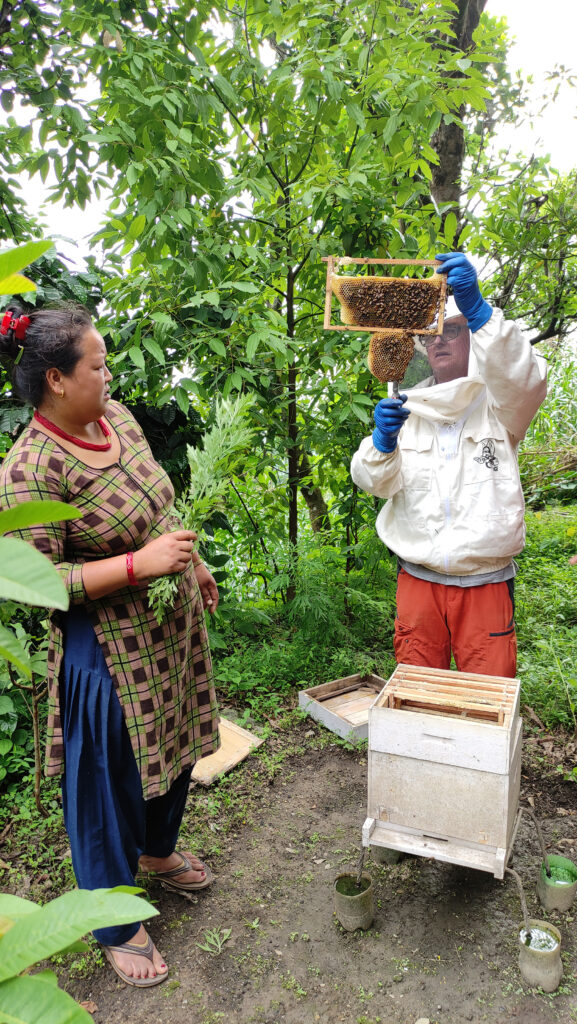
The project, aimed at 75% of women, is part of Nepal’s gender equality and social inclusion plan, as it helps to strengthen the capacities of disadvantaged communities, where the majority of women belong to the Tamang ethnic minority.
Almayuda has found its own values here, as well as consistency in time and space, by extending its partnership with Asia Onlus in the same region of Nepal with a new project.
Photos : DR
Useful link
www.asia-ngo.org




